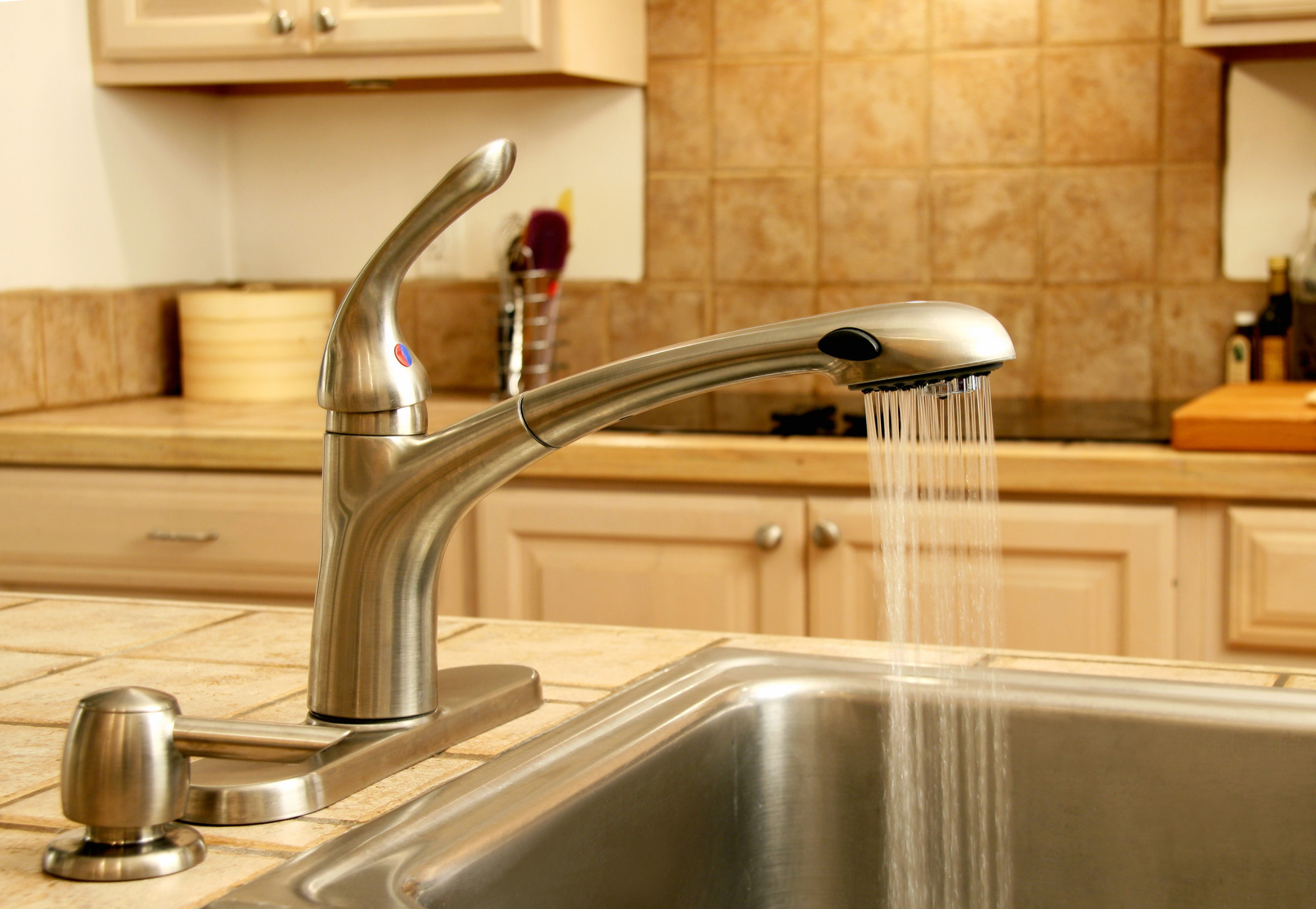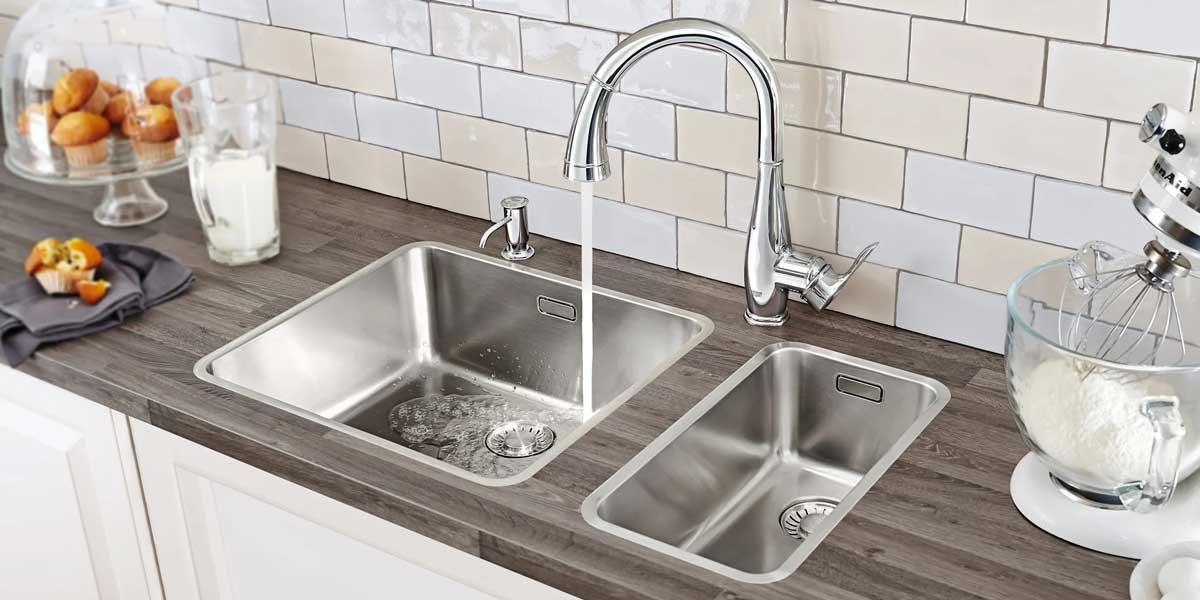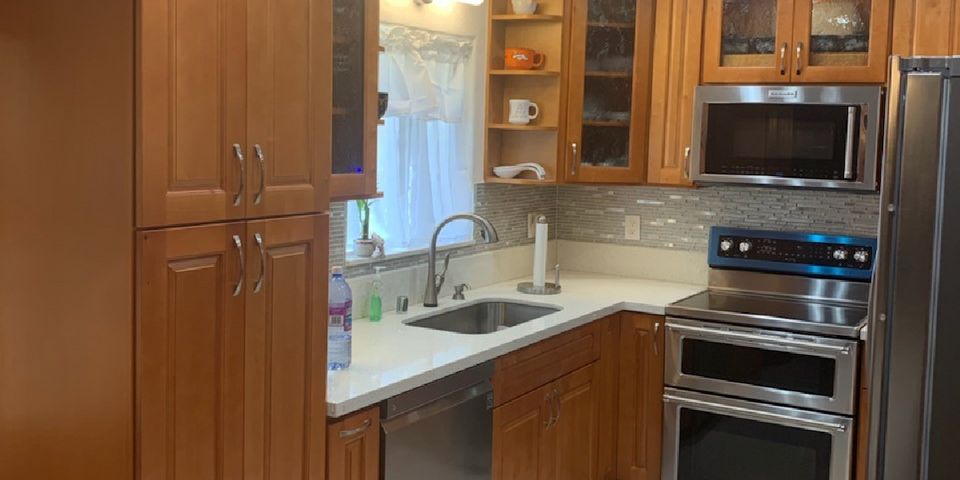1. The Do's and Don'ts of Bleaching Your Kitchen Sink
If you're someone who loves a sparkling clean kitchen, you may have considered bleaching your kitchen sink. While bleach can be an effective cleaning agent, there are certain precautions you should take when using it on your sink. Here are some do's and don'ts to keep in mind.
Do: Use bleach sparingly and dilute it with water. Bleach is a strong chemical and can damage your sink if used too frequently or in high concentrations. A good rule of thumb is to use one part bleach to ten parts water.
Don't: Use bleach on a colored sink. If you have a colored sink, bleach can cause discoloration and damage the finish. Stick to using bleach on white or stainless steel sinks.
2. How to Safely Bleach Your Kitchen Sink
Before you start bleaching your sink, it's important to take some safety precautions. Make sure to wear gloves and eye protection to avoid any splashes or contact with the bleach. It's also a good idea to open windows or turn on a fan for ventilation.
Do: Rinse your sink thoroughly after bleaching. To avoid any potential damage, make sure to rinse your sink with water after using bleach. This will remove any remaining bleach and prevent it from sitting on the surface.
Don't: Mix bleach with other cleaning products. Bleach should never be mixed with other chemicals, as it can create toxic fumes. Stick to using bleach on its own.
3. The Benefits of Bleaching Your Kitchen Sink
One of the main benefits of bleaching your kitchen sink is its ability to kill bacteria and germs. This is especially important in the kitchen, where food particles and bacteria can easily build up. Bleach can also remove tough stains and leave your sink looking bright and clean.
Do: Use bleach to disinfect your sink after handling raw meat. This will help prevent the spread of bacteria and keep your sink clean and sanitary.
Don't: Use bleach on a porous sink. If you have a sink made of materials like granite or marble, avoid using bleach as it can cause damage and discoloration.
4. The Risks of Bleaching Your Kitchen Sink
While bleach can be an effective cleaner, it's important to be aware of the potential risks. Bleach is a harsh chemical and can cause skin irritation and respiratory problems if not used properly. It can also damage certain types of sinks and surfaces.
Do: Read the label and follow instructions carefully. When using bleach, always read the label and follow the instructions to ensure safe and effective use.
Don't: Leave bleach on your sink for extended periods of time. Bleach can damage the finish of your sink if left on for too long. Make sure to rinse it off after a few minutes of use.
5. How to Properly Clean and Bleach Your Kitchen Sink
To get the best results when bleaching your kitchen sink, it's important to properly clean it first. Use a mild detergent and warm water to remove any food particles and debris. Then, apply the bleach solution and let it sit for a few minutes before rinsing it off.
Do: Scrub your sink with a non-abrasive sponge. This will help remove any stubborn stains and ensure an even application of the bleach solution.
Don't: Use bleach on a rusty sink. If your sink has rust stains, using bleach can actually make them worse. Instead, try using a rust remover specifically designed for sinks.
6. The Best Products for Bleaching Your Kitchen Sink
When it comes to bleaching your kitchen sink, not all products are created equal. Some bleach products may be too harsh for certain types of sinks, while others may not be strong enough to effectively clean. Look for bleach specifically designed for use in the kitchen and follow the instructions carefully.
Do: Use a bleach pen for targeted cleaning. If you have tough stains in hard-to-reach areas, a bleach pen can be a helpful tool for precise application.
Don't: Use bleach tablets in your sink. While bleach tablets may be convenient for other cleaning tasks, they are not recommended for use in sinks as they can cause damage.
7. How Often Should You Bleach Your Kitchen Sink?
The frequency of bleaching your kitchen sink depends on your cleaning routine and the amount of use your sink gets. Some people may choose to bleach their sink every week, while others may only do it once a month. However, it's important not to overdo it, as too much bleach can damage your sink.
Do: Stick to a regular cleaning routine. Regularly cleaning and disinfecting your sink can help prevent the need for frequent bleaching.
Don't: Use bleach as a substitute for regular cleaning. While bleach can be effective in killing germs and disinfecting, it's important to also regularly clean your sink with soap and water to remove any buildup and debris.
8. The Dos and Don'ts of Using Bleach in Your Kitchen
Aside from using bleach in your sink, there are other ways you can incorporate it into your kitchen cleaning routine. Here are some dos and don'ts to keep in mind when using bleach in your kitchen:
Do: Use bleach to disinfect countertops and other surfaces. Bleach is a powerful disinfectant and can help kill bacteria and prevent the spread of germs.
Don't: Use bleach on wood or granite countertops. As mentioned before, bleach can cause damage to certain types of surfaces, so it's best to avoid using it on wood or granite countertops.
9. The Effects of Bleach on Different Types of Kitchen Sinks
When considering bleaching your kitchen sink, it's important to take into account the type of sink you have. Different materials can react differently to bleach, so it's important to know what is safe to use on your sink.
Do: Use bleach on stainless steel and porcelain sinks. These materials can handle bleach without any damage or discoloration.
Don't: Use bleach on copper or brass sinks. Bleach can cause these materials to discolor and lose their shine.
10. Alternatives to Bleaching Your Kitchen Sink
If you're hesitant about using bleach in your kitchen, there are other natural and safe alternatives you can try. Some options include using baking soda and vinegar, hydrogen peroxide, or a mild dish soap and water solution.
Do: Test a small area first. Before using any alternative cleaning solutions, it's best to test them on a small, inconspicuous area of your sink to make sure they don't cause any damage.
Don't: Mix alternative cleaning solutions with bleach. Just like with other chemicals, it's important not to mix bleach with other cleaning solutions, as it can create harmful fumes.
By following these tips and guidelines, you can safely and effectively bleach your kitchen sink for a sparkling clean finish. Just remember to always read and follow the instructions on the bleach product you choose and take proper safety precautions. Happy cleaning!
Why You Should Avoid Bleaching Your Kitchen Sink
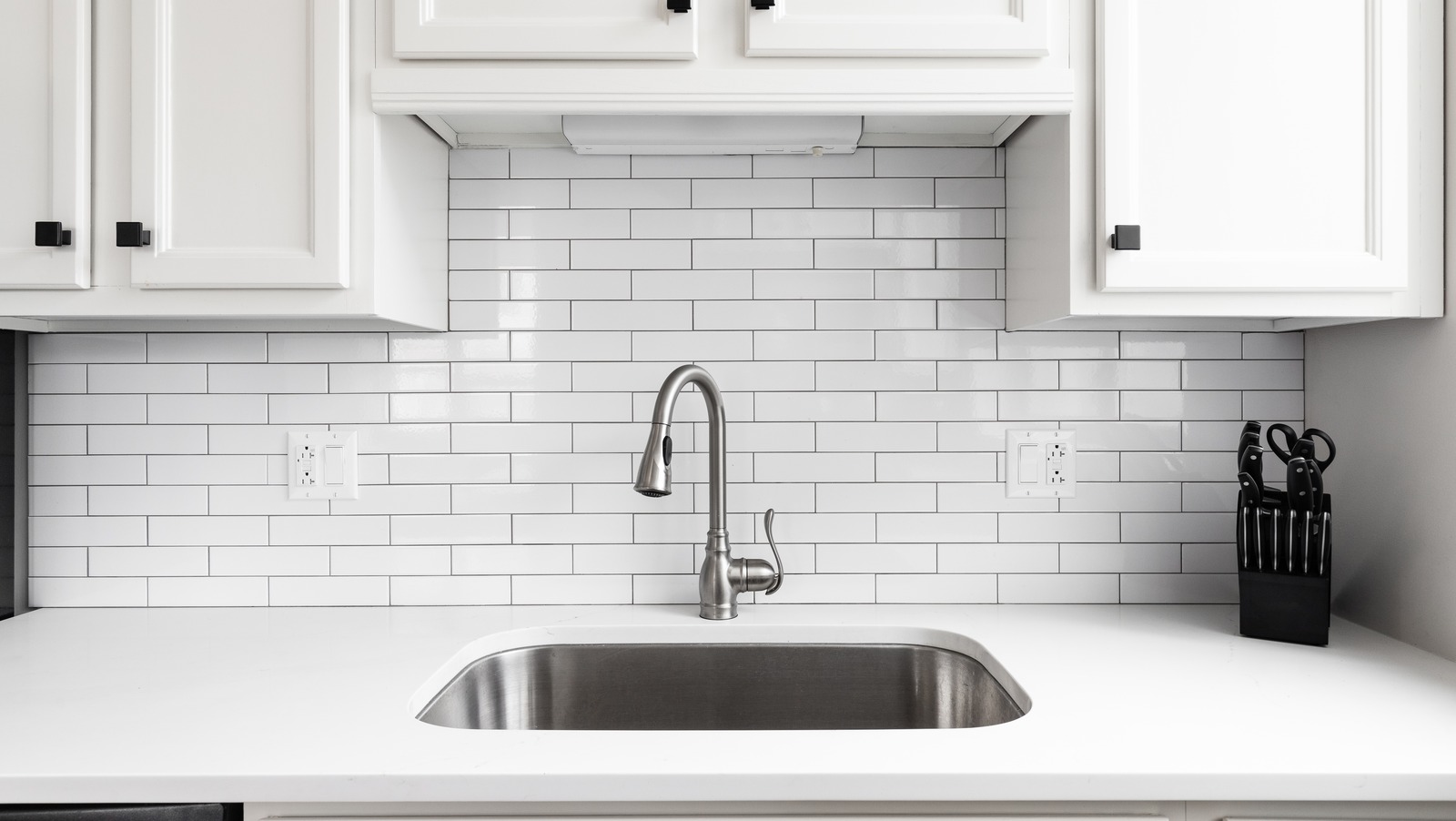
The Importance of a Clean Kitchen Sink
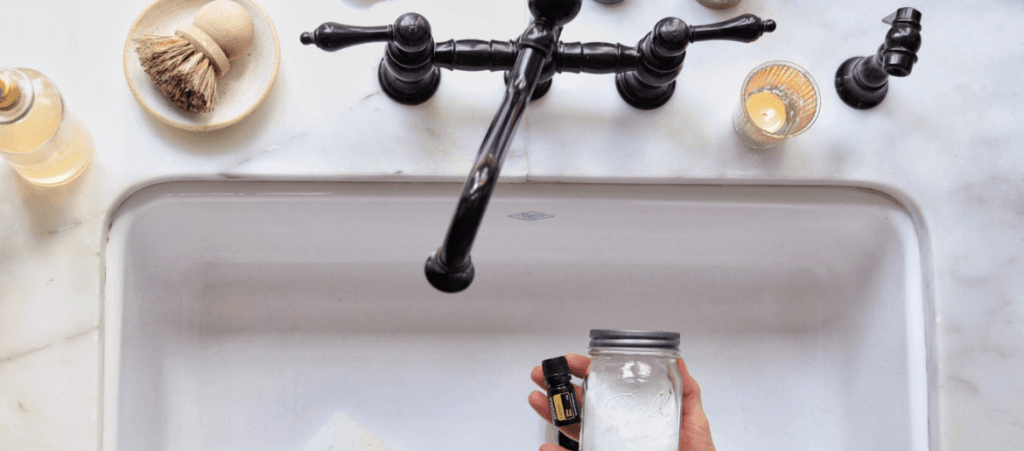 Your kitchen sink is one of the most used areas in your home. Whether it's washing dishes, preparing food, or simply getting a glass of water, your sink is constantly exposed to dirt, bacteria, and other contaminants. This is why keeping your kitchen sink clean is crucial for maintaining a healthy and hygienic home.
Your kitchen sink is one of the most used areas in your home. Whether it's washing dishes, preparing food, or simply getting a glass of water, your sink is constantly exposed to dirt, bacteria, and other contaminants. This is why keeping your kitchen sink clean is crucial for maintaining a healthy and hygienic home.
What is Bleaching?
 Bleaching is a cleaning method that involves using harsh chemicals to remove stains and disinfect surfaces. While it may seem like a quick and easy solution, it can actually do more harm than good, especially when it comes to your kitchen sink.
Bleaching is a cleaning method that involves using harsh chemicals to remove stains and disinfect surfaces. While it may seem like a quick and easy solution, it can actually do more harm than good, especially when it comes to your kitchen sink.
The Negative Effects of Bleaching Your Kitchen Sink
 Bleaching can damage your sink's surface
- Most kitchen sinks are made of stainless steel, porcelain, or acrylic. These materials are not meant to withstand the harsh chemicals found in bleach. Over time, bleaching your sink can cause it to corrode, discolor, and even develop scratches and cracks.
Bleaching can harm your health
- When bleach is mixed with water, it produces toxic fumes that can be harmful when inhaled. These fumes can irritate your eyes, nose, and throat, and may even cause respiratory problems. If you have small children or pets at home, bleaching your sink can put them at risk of exposure to these harmful chemicals.
Bleaching can harm the environment
- Bleach is not only harmful to your health, but it also has a negative impact on the environment. When washed down the drain, it can contaminate water sources and harm aquatic life. It also contributes to water pollution and can affect the overall ecosystem.
Bleaching can damage your sink's surface
- Most kitchen sinks are made of stainless steel, porcelain, or acrylic. These materials are not meant to withstand the harsh chemicals found in bleach. Over time, bleaching your sink can cause it to corrode, discolor, and even develop scratches and cracks.
Bleaching can harm your health
- When bleach is mixed with water, it produces toxic fumes that can be harmful when inhaled. These fumes can irritate your eyes, nose, and throat, and may even cause respiratory problems. If you have small children or pets at home, bleaching your sink can put them at risk of exposure to these harmful chemicals.
Bleaching can harm the environment
- Bleach is not only harmful to your health, but it also has a negative impact on the environment. When washed down the drain, it can contaminate water sources and harm aquatic life. It also contributes to water pollution and can affect the overall ecosystem.
Alternatives to Bleaching Your Kitchen Sink
 Instead of using bleach, there are plenty of natural and safe alternatives you can use to clean your kitchen sink. Some options include using baking soda, vinegar, lemon juice, or a combination of these ingredients. These natural cleaners are just as effective in removing stains and disinfecting your sink without causing any harm.
Instead of using bleach, there are plenty of natural and safe alternatives you can use to clean your kitchen sink. Some options include using baking soda, vinegar, lemon juice, or a combination of these ingredients. These natural cleaners are just as effective in removing stains and disinfecting your sink without causing any harm.
Conclusion
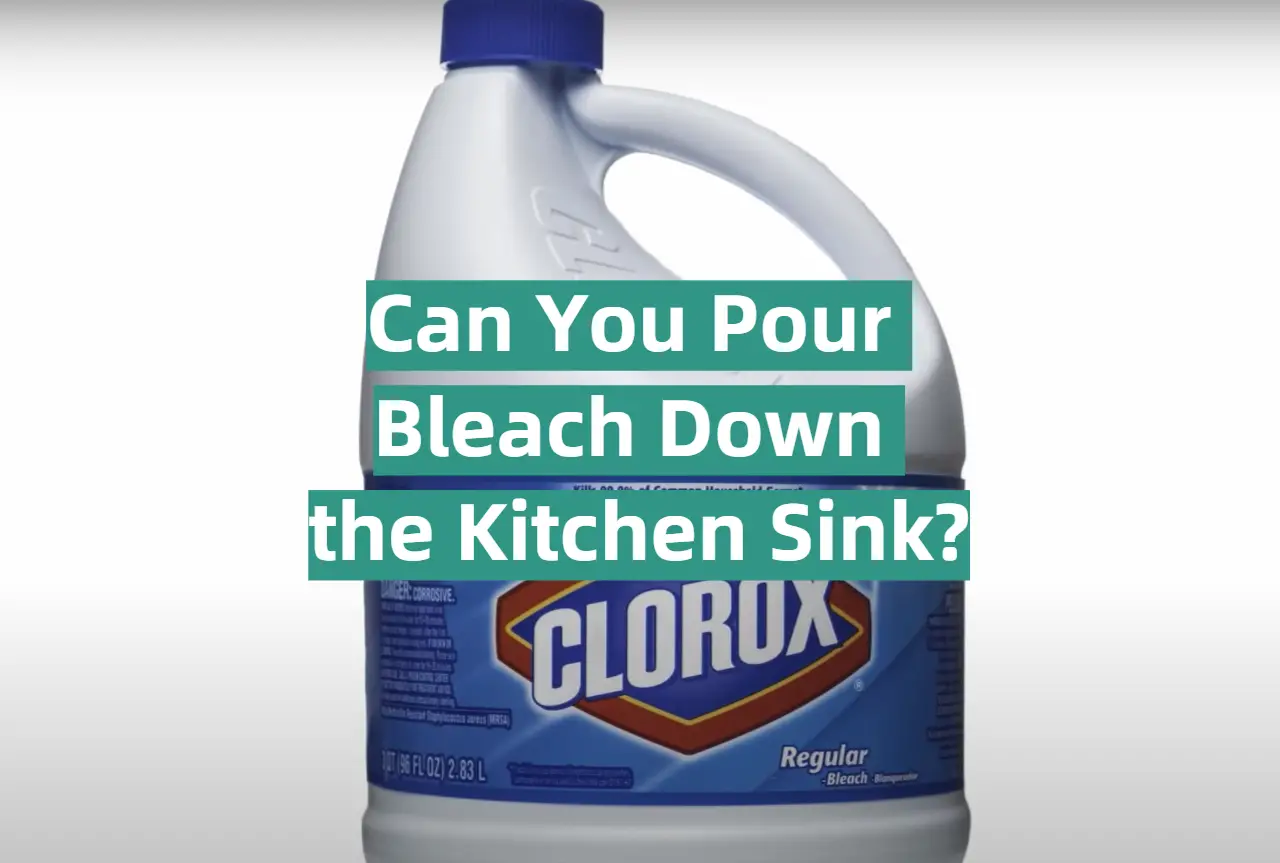 In conclusion, while it may be tempting to reach for the bleach when cleaning your kitchen sink, it's important to consider the negative effects it can have on your sink, your health, and the environment. Using natural and safe alternatives is not only better for your sink, but also for your overall well-being. So next time you're cleaning your kitchen, opt for a gentler approach and steer clear of bleaching your sink.
In conclusion, while it may be tempting to reach for the bleach when cleaning your kitchen sink, it's important to consider the negative effects it can have on your sink, your health, and the environment. Using natural and safe alternatives is not only better for your sink, but also for your overall well-being. So next time you're cleaning your kitchen, opt for a gentler approach and steer clear of bleaching your sink.




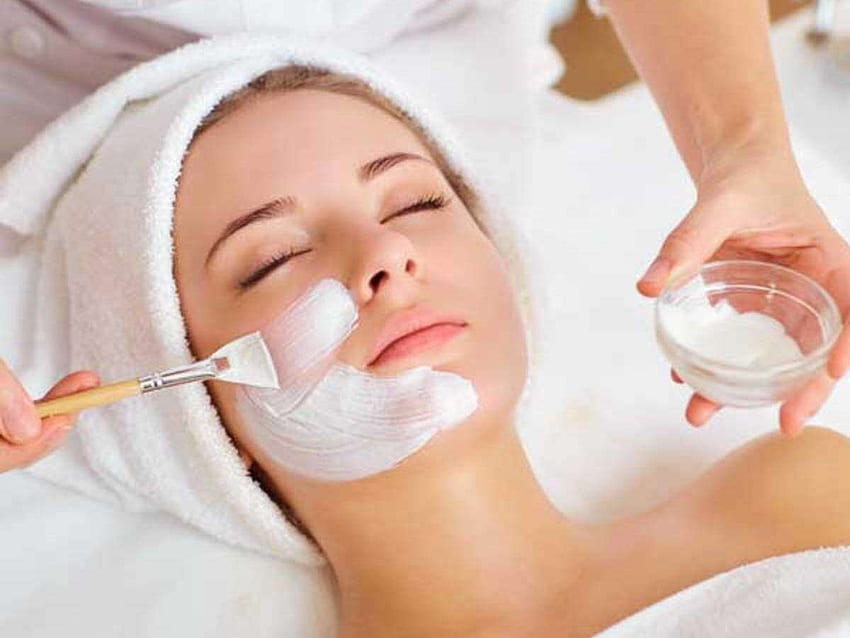

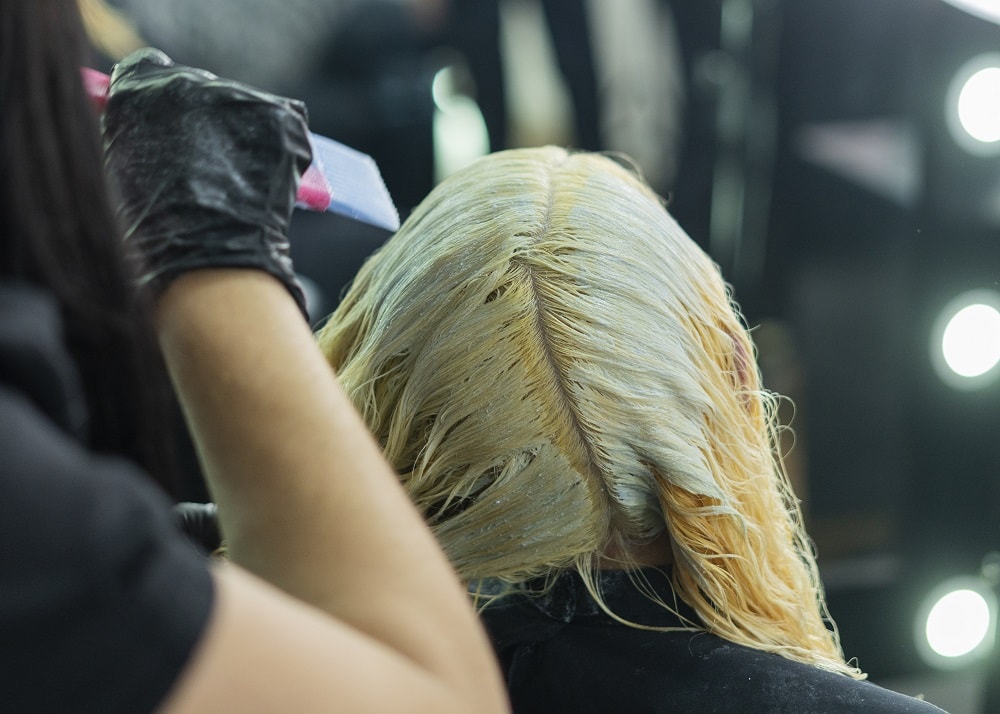


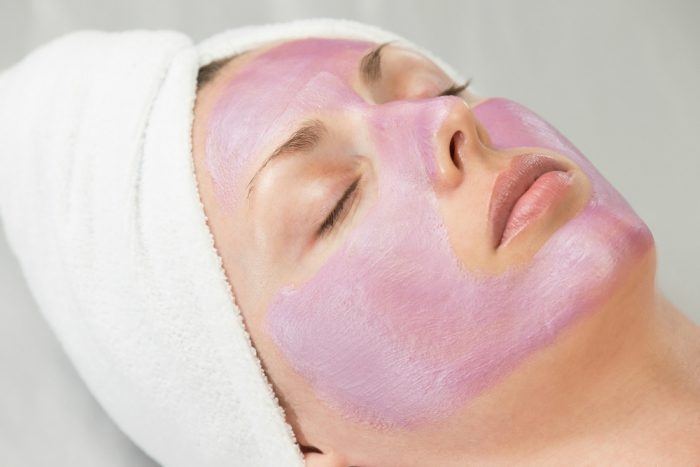
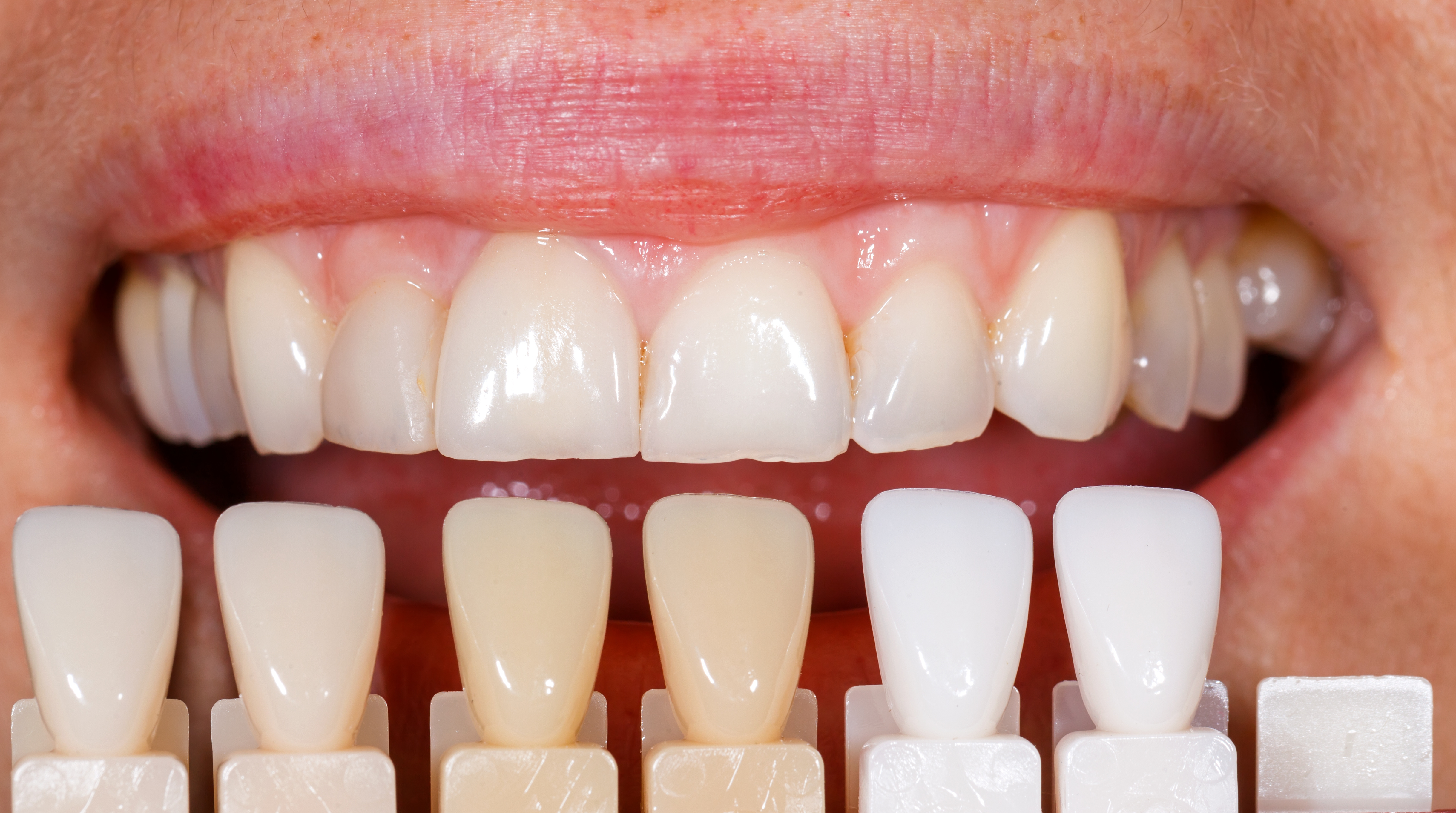

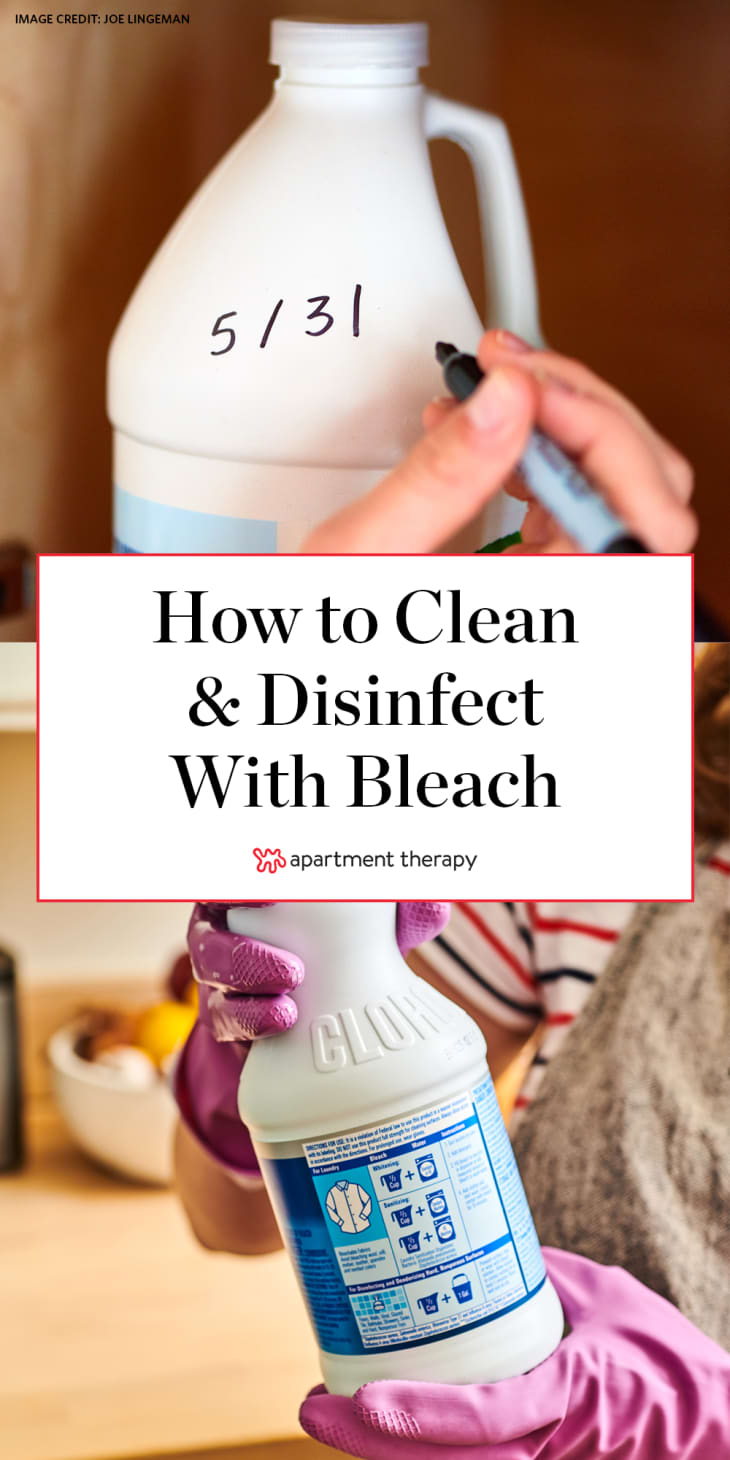





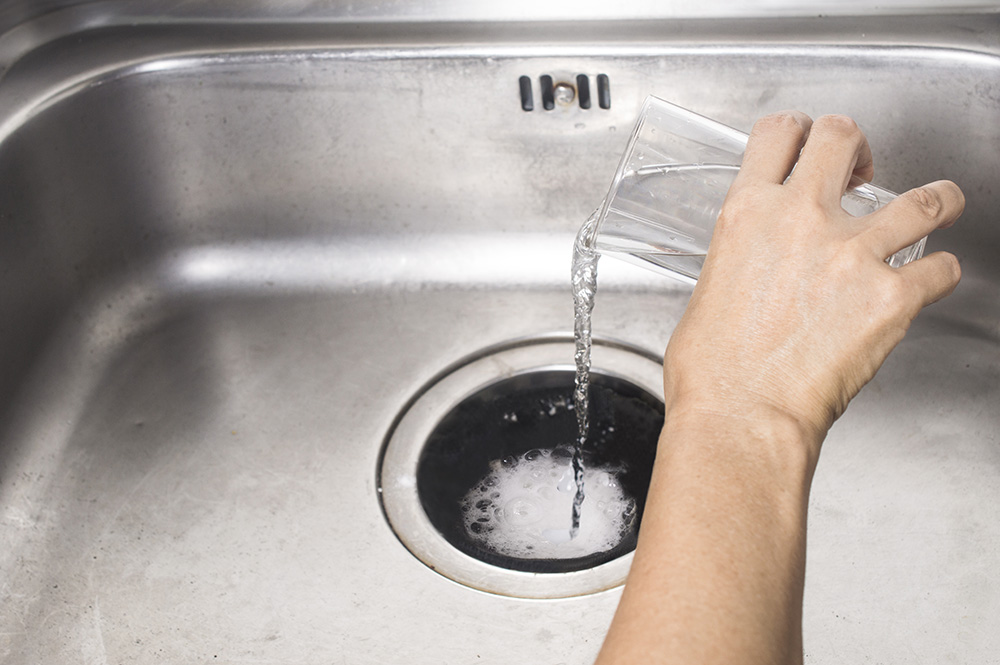


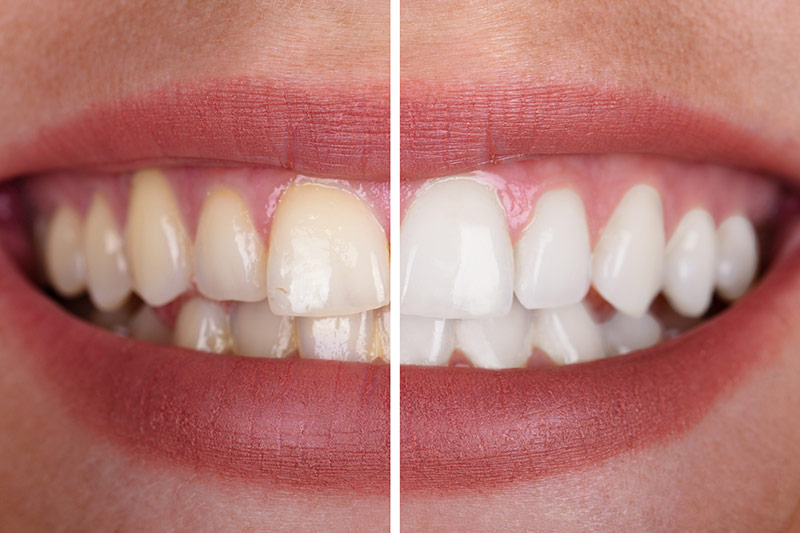

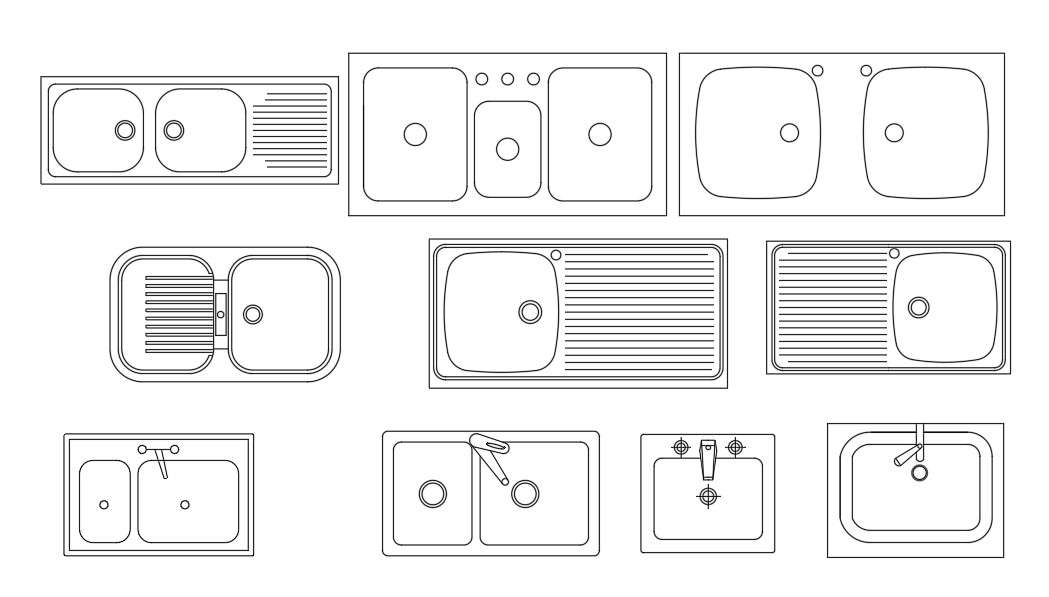























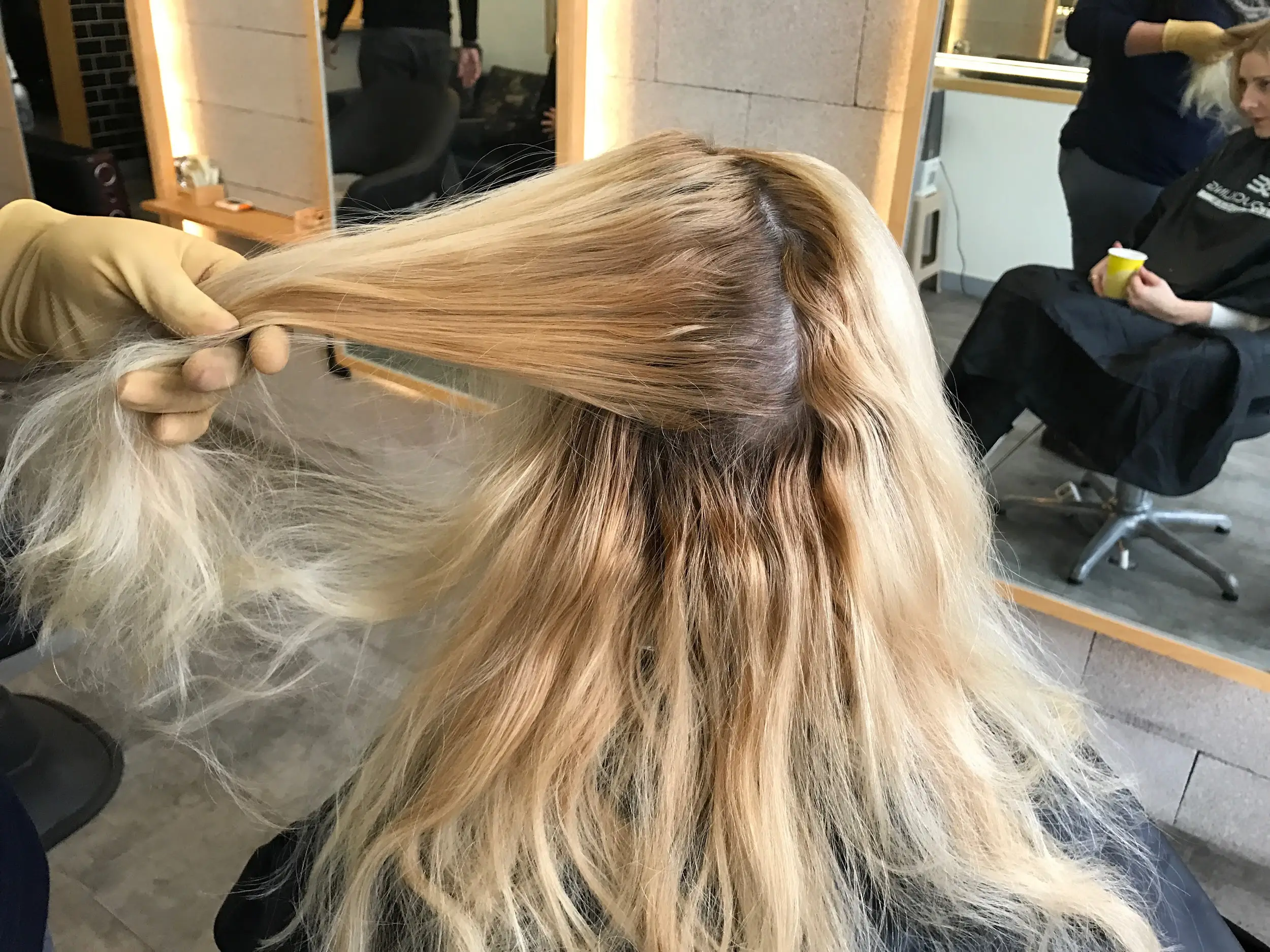

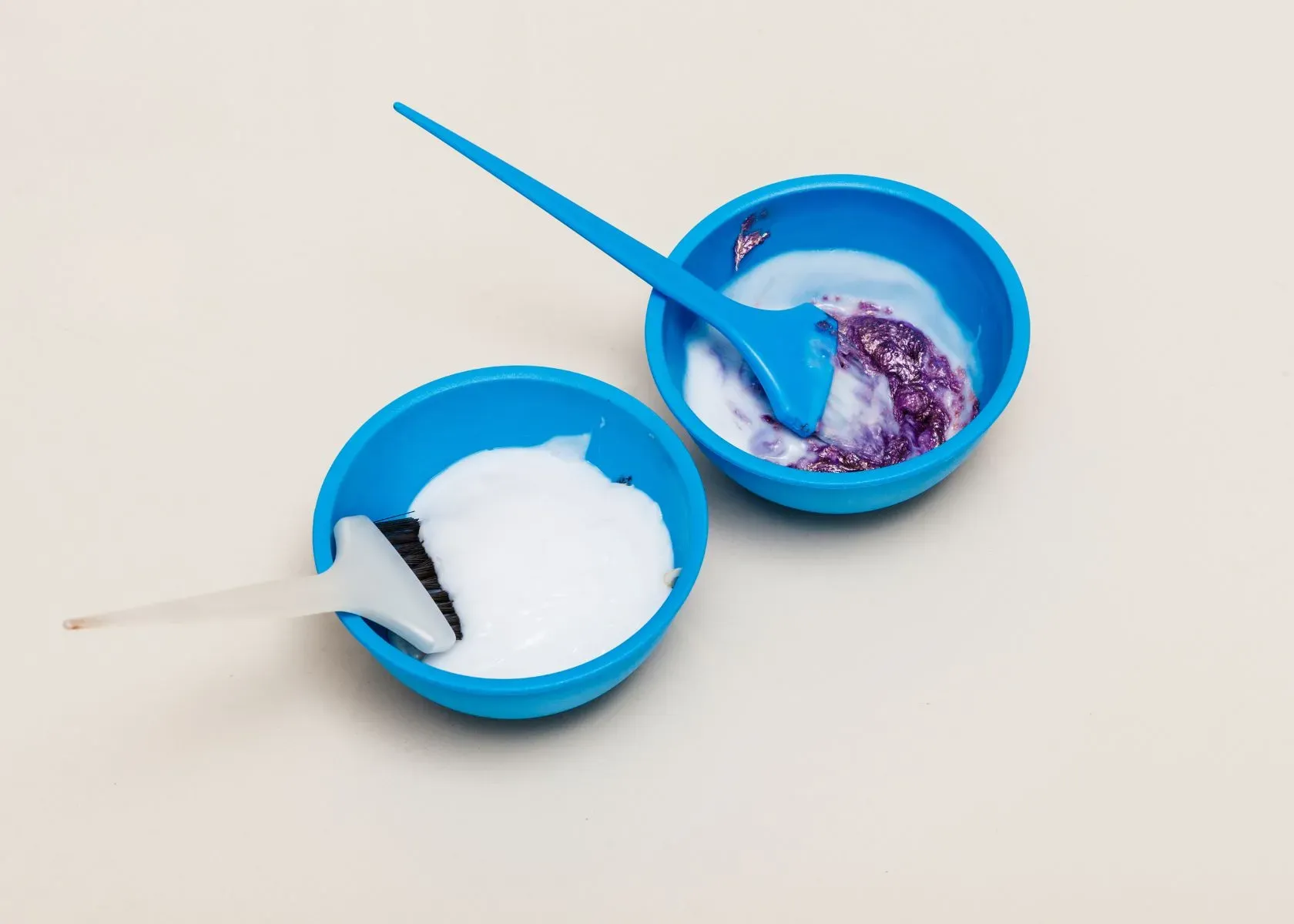



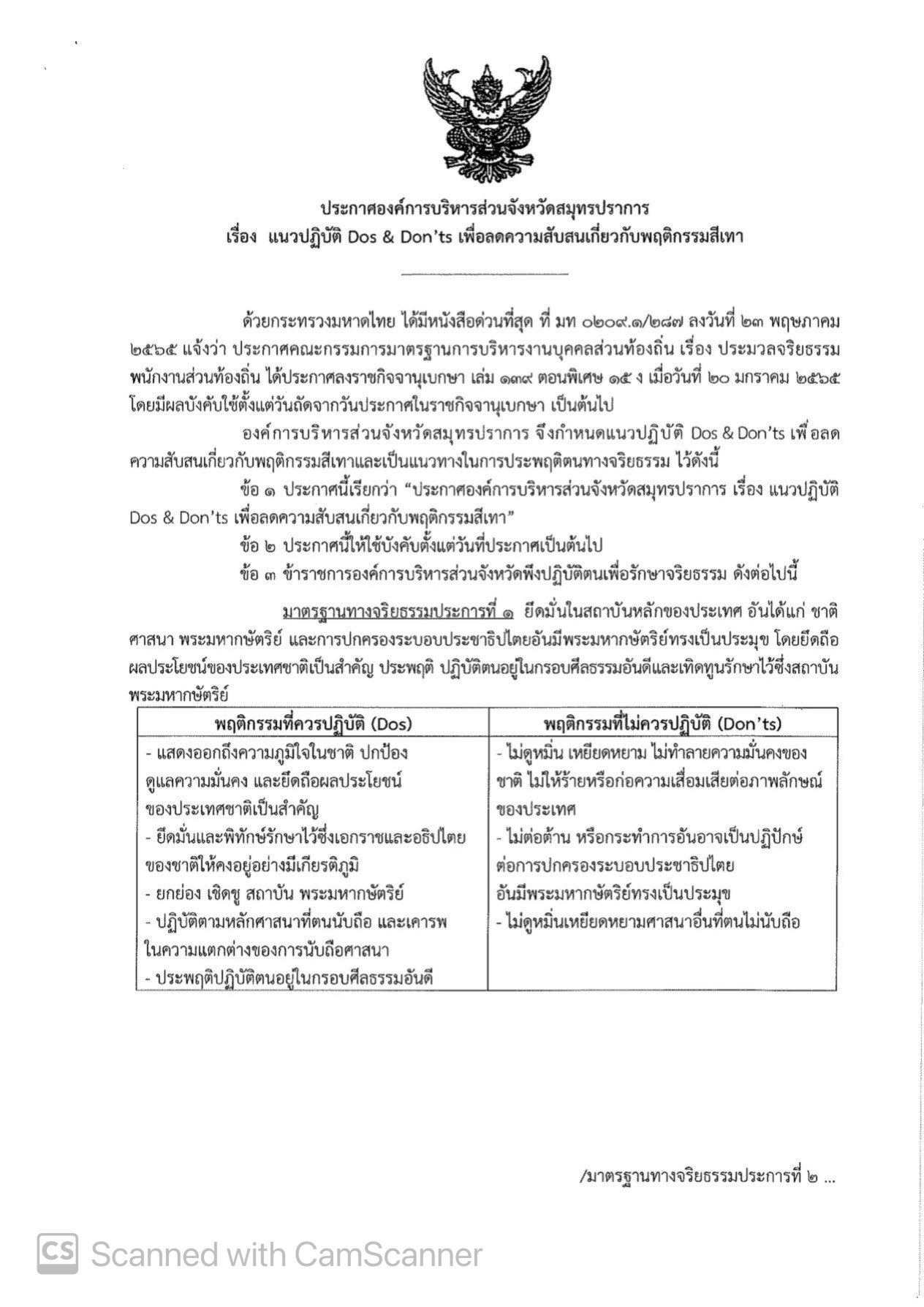

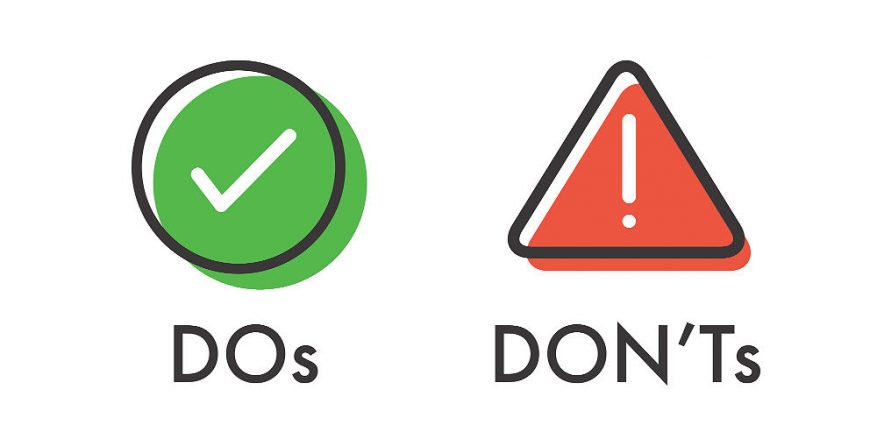








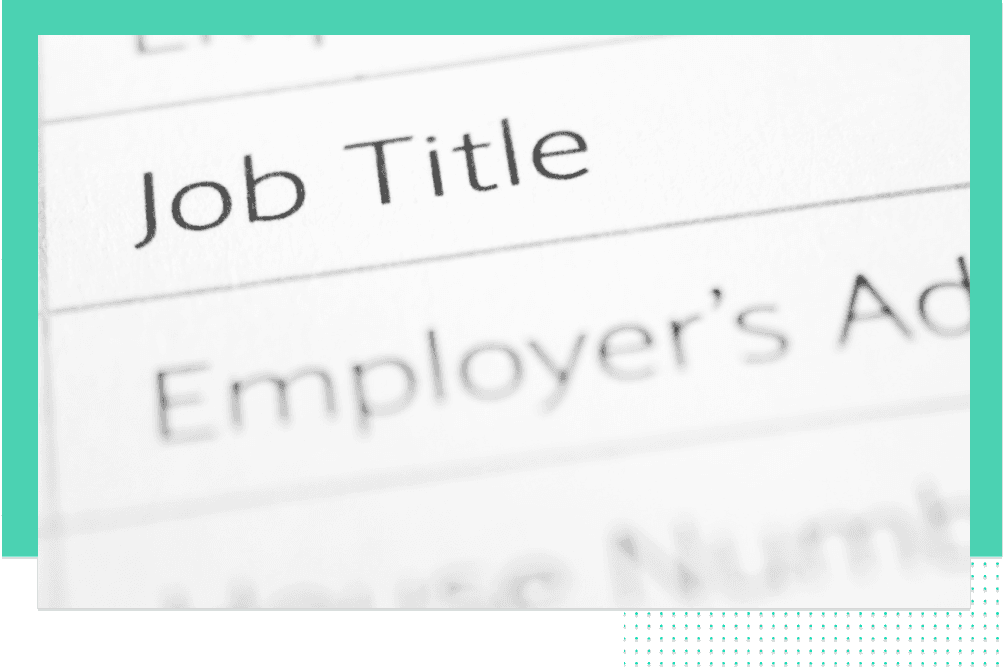

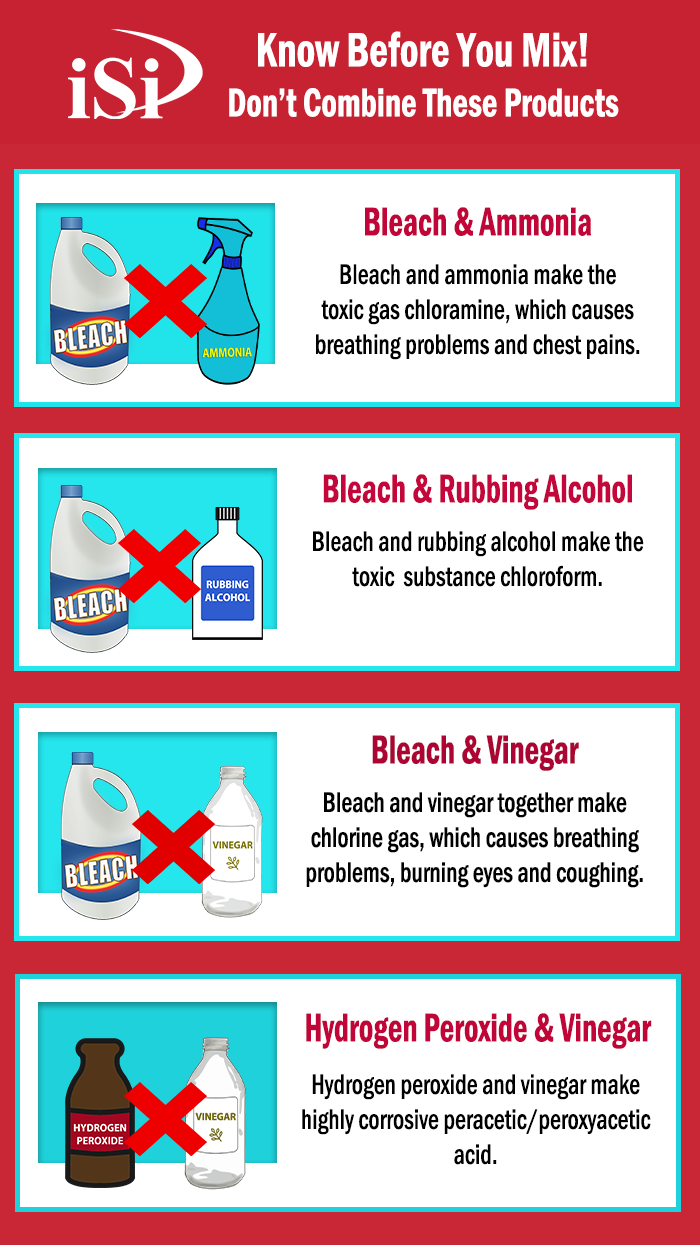

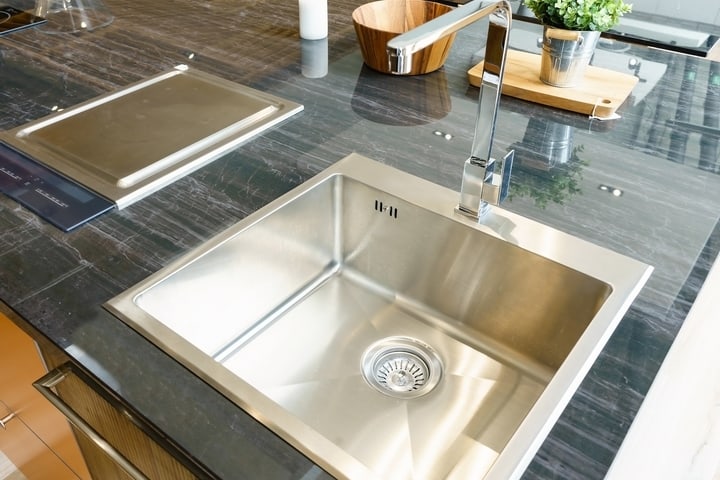

:max_bytes(150000):strip_icc()/Basic-kitchen-sink-types-1821207_color_rev-0b539306b9ef4236a136624ad2a89a4c.jpg)
